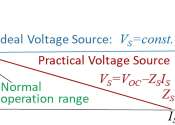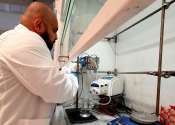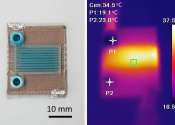Reorganizing a computer chip: Transistors can now both process and store information
A computer chip processes and stores information using two different devices. If engineers could combine these devices into one or put them next to each other, then there would be more space on a chip, making it faster and ...
Dec 9, 2019
0
1972









